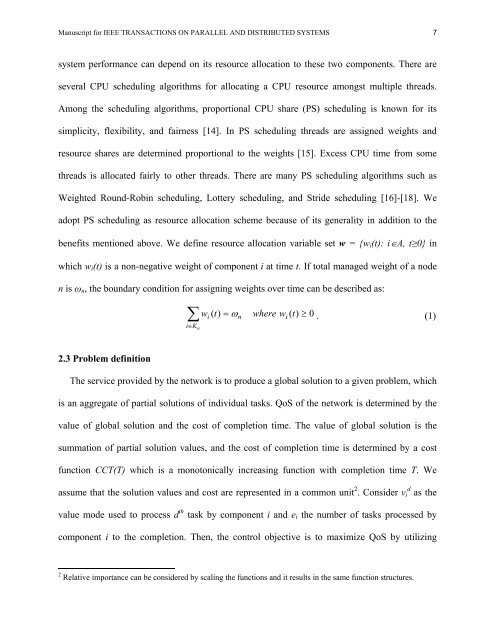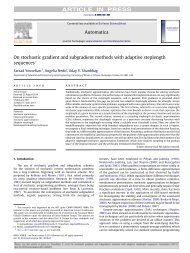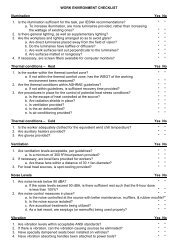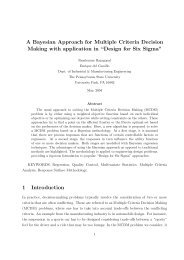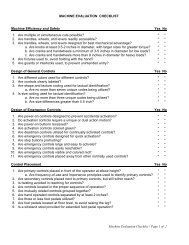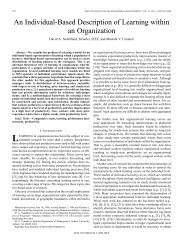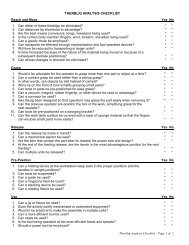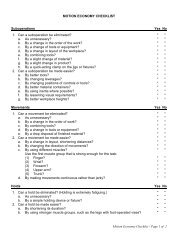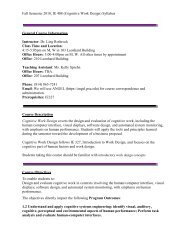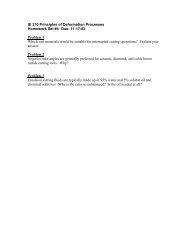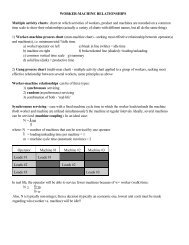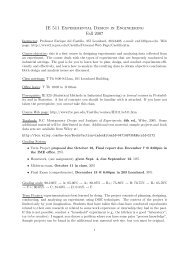DARPA ULTRALOG Final Report - Industrial and Manufacturing ...
DARPA ULTRALOG Final Report - Industrial and Manufacturing ...
DARPA ULTRALOG Final Report - Industrial and Manufacturing ...
Create successful ePaper yourself
Turn your PDF publications into a flip-book with our unique Google optimized e-Paper software.
Manuscript for IEEE TRANSACTIONS ON PARALLEL AND DISTRIBUTED SYSTEMS 7<br />
system performance can depend on its resource allocation to these two components. There are<br />
several CPU scheduling algorithms for allocating a CPU resource amongst multiple threads.<br />
Among the scheduling algorithms, proportional CPU share (PS) scheduling is known for its<br />
simplicity, flexibility, <strong>and</strong> fairness [14]. In PS scheduling threads are assigned weights <strong>and</strong><br />
resource shares are determined proportional to the weights [15]. Excess CPU time from some<br />
threads is allocated fairly to other threads. There are many PS scheduling algorithms such as<br />
Weighted Round-Robin scheduling, Lottery scheduling, <strong>and</strong> Stride scheduling [16]-[18]. We<br />
adopt PS scheduling as resource allocation scheme because of its generality in addition to the<br />
benefits mentioned above. We define resource allocation variable set w = {w i (t): i∈A, t≥0} in<br />
which w i (t) is a non-negative weight of component i at time t. If total managed weight of a node<br />
n is ω n , the boundary condition for assigning weights over time can be described as:<br />
∑<br />
i∈K<br />
n<br />
wi<br />
( t)<br />
= ωn<br />
where wi<br />
( t)<br />
≥ 0 . (1)<br />
2.3 Problem definition<br />
The service provided by the network is to produce a global solution to a given problem, which<br />
is an aggregate of partial solutions of individual tasks. QoS of the network is determined by the<br />
value of global solution <strong>and</strong> the cost of completion time. The value of global solution is the<br />
summation of partial solution values, <strong>and</strong> the cost of completion time is determined by a cost<br />
function CCT(T) which is a monotonically increasing function with completion time T. We<br />
assume that the solution values <strong>and</strong> cost are represented in a common unit 2 . Consider v d i as the<br />
value mode used to process d th task by component i <strong>and</strong> e i the number of tasks processed by<br />
component i to the completion. Then, the control objective is to maximize QoS by utilizing<br />
2 Relative importance can be considered by scaling the functions <strong>and</strong> it results in the same function structures.


